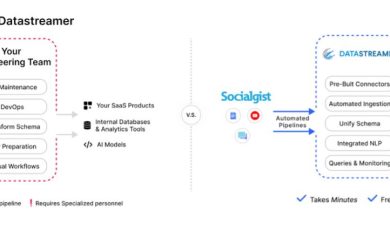The world was a different place 10 years ago, when social listening apps became must-have tools for marketers.
Back then, social networks were largely the province of students, binge watching had to be done on DVDs,
vampires ruled teen culture and our phones still had keyboards. Since then, the social data ecosystem has
moved through three evolutions:

1) The Wild West (2000-2010). Aggregators collected public data without license or consent. Analytics were
primitive and focused on volume metrics / share of voice. AI-based meaning extraction from text was
nascent/academic.

2) Early civilization (2010-2015). Big social platforms began to offer data under license. The analytics space
blossomed with venture funding and tools became tailored to specific corporate functions (communications,
marketing, risk management, operations). Commercially available text analytics were now widely available, but
often limited to “polar” sentiment analysis (positive vs. negative).

3) The modern era (2015-2018). Data access becomes contextual and conditional upon use cases and user
consent. Big social platforms limit data access. Analytics players begin to consolidate. Text analytics can now
be tuned to recognize and score topics, taxonomies and attitudes relevant to a specific corporate narrative.
Socialgist and data governance
At Socialgist, we’ve played a key role in this evolution. As data governance has become an industry focus, we
have bolstered data licensing rights across the analytics community through our partnerships with leading
platforms like Reddit and VKontakte. We incorporated new features required to give social data
analysts richer metadata and better fidelity:
- Compliance feeds which ensure that when a social network user edits or deletes a post, those changes are
persisted to all of the analytics platforms that use the post - Stats such as view counts, comment counts and vote counts to help surface trending and popular content
- Better language support tools to help filter through challenging languages like Chinese, Japanese, Korean
and Russian as international social data becomes more accessible and vital to brands
At the same time, we have watched consumer opinion data become more vital to a range of enterprise functions
beyond marketing, including product development and risk management. We’re eager to continue to learn and
grow with our customers through the next decade of social data evolution.


